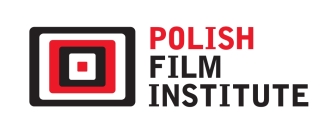Mirror
Abstract
The article recalls two Polish theoreticians of cinema – Karol Irzykowski and Grzegorz Królikiewicz – and their main concepts: the mirror principle and the molecule, respectively. At the same time, it checks the functionality of these concepts and reinterprets them in the context of Sebastian Jagielski’s newly published book Przerwane emancypacje. Polityka ekscesu w kinie polskim lat 1968-1982 [Interrupted Emancipations: The Politics of Excess in Polish Cinema, 1968-1982] (2021). This work proposes an interpretation of Polish cinema from the late 1960s to the early 1980s through the notion of excess, which the author defines as a formal or visual surplus that explodes and destabilizes the social norm. In this respect, the book also becomes a commentary on Polish culture of the period in question. By asking questions about (im)possible emancipation, broken modernization processes and mismatched subjects, Jagielski also asks about the relationship between cinema and life, and the way in which these two realities feed on each other. (Non-reviewed material).
Keywords:
Karol Irzykowski, Grzegorz Królikiewicz, Sebastian Jagielski, film theory, history of Polish cinemaReferences
Barthes, R. (1971). Trzeci sens (tłum. R. Wyborski). Kino, (11), ss. 37-41.
Google Scholar
Deleuze, G. (2008). Kino 1. Obraz-ruch. 2. Obraz-czas (tłum. J. Margański). Gdańsk: słowo/obraz terytoria.
Google Scholar
Irzykowski, K. (1982). Dziesiąta Muza oraz pomniejsze pisma filmowe. Kraków: Wydawnictwo Literackie.
Google Scholar
Jagielski, S. (2021). Przerwane emancypacje. Polityka ekscesu w kinie polskim lat 1968-1982. Kraków: Universitas.
Google Scholar
Kurz, I. (2017). Karol Irzykowski: „zasada zwierciadła”. W: I. Kurz, P. Kwiatkowska, M. Szcześniak, Ł. Zaremba (red.), Kultura wizualna w Polsce. Fragmenty. Warszawa: Fundacja Bęc Zmiana – Instytut Kultury Polskiej Uniwersytetu Warszawskiego.
Google Scholar
Kwiatkowska, P. (2017). Fotogeniczność. W: I. Kurz, P. Kwiatkowska, M. Szcześniak, Ł. Zaremba, Kultura wizualna w Polsce. Spojrzenia. Warszawa: Fundacja Bęc Zmiana – Instytut Kultury Polskiej Uniwersytetu Warszawskiego.
Google Scholar
Authors
Iwona Kurzi.kurz@uw.edu.pl
University of Warsaw Poland
https://orcid.org/0000-0001-7180-8670
Culture critic and historian, film expert. She deals with the history of modern Polish culture in the visual perspective, theory of visual culture, and the issues of body and gender. Recent books (co-edited and co-authored): Kultura wizualna w Polsce [Visual Culture in Poland] (2017), Ekspozycje nowoczesności. Wystawy a doświadczanie procesów modernizacyjnych w Polsce 1821-1929 [Expositions of Modernity: Exhibitions and Experiencing Modernization Processes in Poland 1821-1929] (2017) and Ślady Holokaustu w imaginarium kultury polskiej [Traces of the Holocaust in the Imaginarium of Polish Culture] (2017). She writes for Kino and Dwutygodnik.
Statistics
Abstract views: 188PDF downloads: 204
License
Copyright (c) 2022 Iwona Kurz

This work is licensed under a Creative Commons Attribution-NonCommercial-NoDerivatives 4.0 International License.
The author grants the publisher a royalty-free non-exclusive licence (CC BY 4.0) to use the article in Kwartalnik Filmowy, retains full copyright, and agrees to identify the work as first having been published in Kwartalnik Filmowy should it be published or used again (download licence agreement). The journal is published under the CC BY 4.0 licence. By submitting an article, the author agrees to make it available under this licence.
In issues from 105-106 (2019) to 119 (2022) all articles were published under the CC BY-NC-ND 4.0 licence. During this period the authors granted a royalty-free non-exclusive licence (CC BY-ND 4.0) to use their article in „Kwartalnik Filmowy”, retained full copyright, and agreed to identify the work as first having been published in our journal should it be published or used again.
Most read articles by the same author(s)
- Iwona Kurz, The Actress’s Task Is to Play , Kwartalnik Filmowy: No. 117 (2022): Unknown/Hidden Cinema
- Iwona Kurz, Female Workers Are Leaving the Movie Theater , Kwartalnik Filmowy: No. 116 (2021): Cinema and Social Identity
- Iwona Kurz, The Bloodstream of History , Kwartalnik Filmowy: No. 118 (2022): One Take
- Iwona Kurz, The Firemen’s Ball , Kwartalnik Filmowy: No. 120 (2022): Film Culture
- Iwona Kurz, Where is She – the Author? , Kwartalnik Filmowy: No. 125 (2024): Cinema as a Memory Machine











